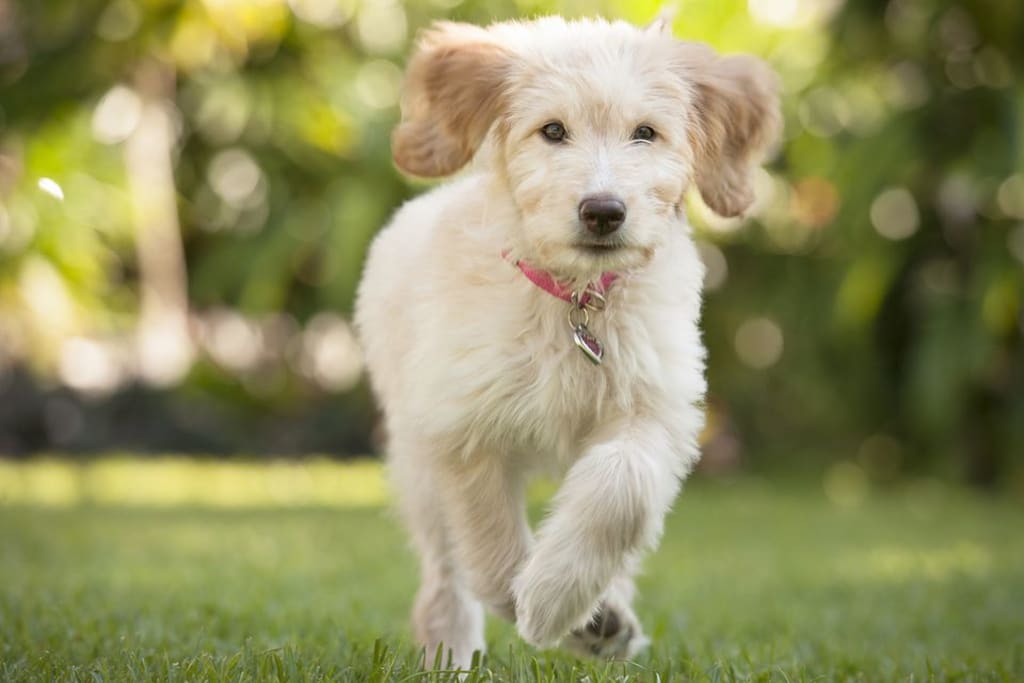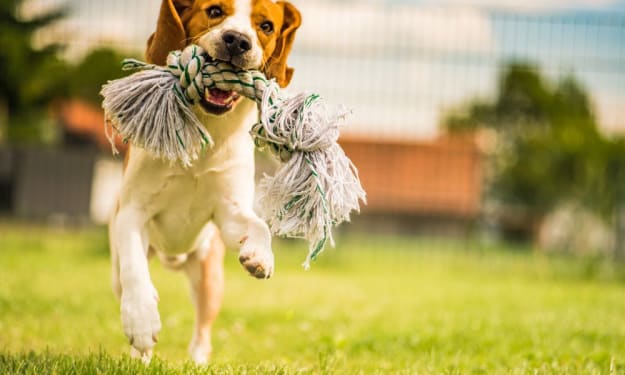How to Train Your Puppy to Come When Called
Teaching your puppy to come when called is a basic command that all dogs should learn. Not only does it promote polite behavior, but it can also save your pup's life. Curious puppies get into trouble without constant supervision. Even when you're watching, this teasing squirrel may tempt your pup to bump into traffic before you can stop it.

Teaching your puppy to respond to your calls is an essential skill to have when you. Not only does it promote polite behavior, but it can also save your pup's life. Many puppies get into trouble without constant supervision.
Even when you're watching, this teasing squirrel may tempt your pup to bump into traffic before you can stop it.
A reminder on call helps owners stay out of trouble, even from a distance. Despite their size, puppies move faster on four chubby legs than people, so there's no way to catch them. Chasing a puppy becomes a racing game that you won't win. When you teach your dog to obey the "come" command, he will stay safely within reach, even without the benefit of a leash.

Choose a reward
Determine which reward — perhaps a treat, a squeaky toy, or a tug game — your pup prefers. Make sure it's irresistible and far more exciting than anything in your pup's world. Reserve this treat for training exercises. Pleasures are more of a fun touch than food, so they should be tiny, stinky, and no bigger than the tip of your little finger.
Minimize distractions
Find a time when the kids aren't around, the house is quiet, and other pets are napping. Don't allow the puppy to distract you from what you need to do. Call out the puppy's name, get his attention, and go up to him if necessary to show him the treat or squeaky toy.
Make it a game
Once your pup is focused on you and the reward, say his name and add "come"! Then turn around and run in the opposite direction. It encourages the dog's instinctual need for social play, and Puppies can rarely resist the urge to hunt.
Let the puppy catch up to you, then give or throw the reward. Praise your puppy for being such an intelligent dog. Give him lots of hugs and talk, so he knows without a doubt that he made you happy.
Repeat the chase game several times in a row. Leave your pup wanting more, so stop before he gets tired of the game. Practice the "come" command like this once or twice a day for a week.
Increase the difficulty
After a week, try the exercise while standing. Make sure the puppy isn't sleeping, eating, or concentrating on something exciting. Say your puppy's name, add "come," and point to the squeaky toy or treat. When the puppy arrives, throw a big party with the reward in the form of a treat or toy.
Once your puppy understands what "come" means and consistently obeys without distraction, it's time to put his memory skills to the test. Try to keep him away from interesting hobbies like butterfly hunting or anything that grabs his attention. Practice "come" in new places, not just in the living room, but also outside, in the yard or at someone else's house.
Every time your puppy comes to see you, no matter how long it takes, be sure to praise and reward him. Above all, you want the puppy to have only positive associations so that he never fears coming back to you.
Proof Problems and Behavior
Puppies refuse to come when called for several reasons. For example, new puppies may not know their names yet, so they might as well shout gibberish.
However, in most cases, puppies don't know what the command means. It's essential to explain the term in a language your puppy understands. After all, if you don't speak French, it's unfair to expect you to understand anything in that language. Similarly, it takes time for puppies to learn the word "human." Learning the clicker is a great way to communicate with your pup, and you might want to try too.
Another reason puppies ignore the reminder is that there is no benefit to them. Why should your pup forget to chase that butterfly or run down the street to meet the kid with a ball and come back to you instead? It's boring! Coming when called should trump any other behavior that causes the puppy to ignore your command. Once your puppy has come to see you, regularly practice the command you gave him. If you don't need to remind him, do it anyway and offer him a treat as a reminder of your lessons.
One of the most common and serious mistakes is to punish the puppy when it finally comes to you. Sure, you're irritated that you were ignored and had to frantically shout his name to go or maybe chasing the pup made you late for work. However, you teach the wrong lesson by acting upset. The puppy learns that when he finally comes, he will be reprimanded, so he will be even less likely to obey the next time. The bottom line is that you should never punish when your puppy arrives, no matter how long it takes to react.
About the Creator
Noor Afridi
I am a highly skilled, enthusiastic, self-motivated professional writer with a great successful experience of full five years. My education and research in the field have made me one of the perfect professional writers.
Enjoyed the story? Support the Creator.
Subscribe for free to receive all their stories in your feed. You could also pledge your support or give them a one-off tip, letting them know you appreciate their work.






Comments
There are no comments for this story
Be the first to respond and start the conversation.